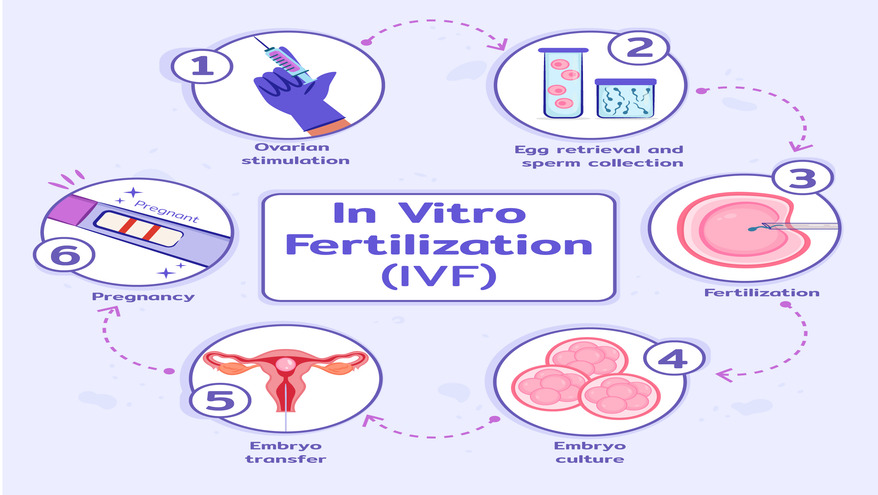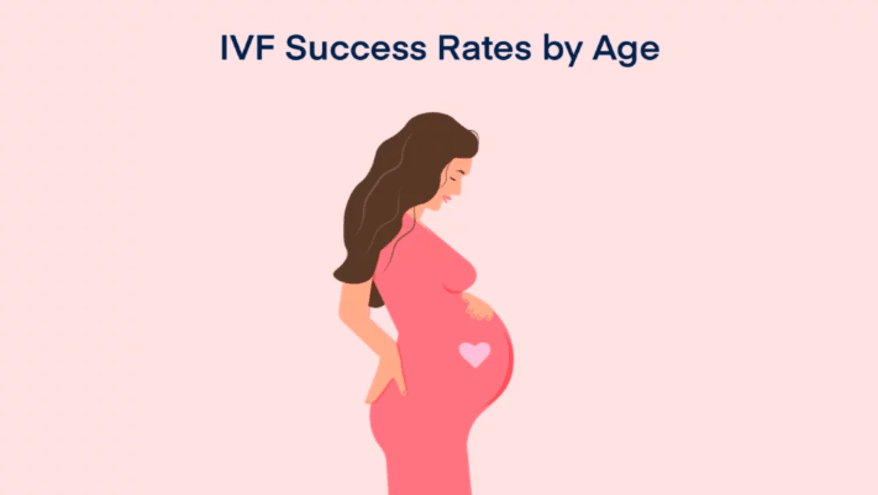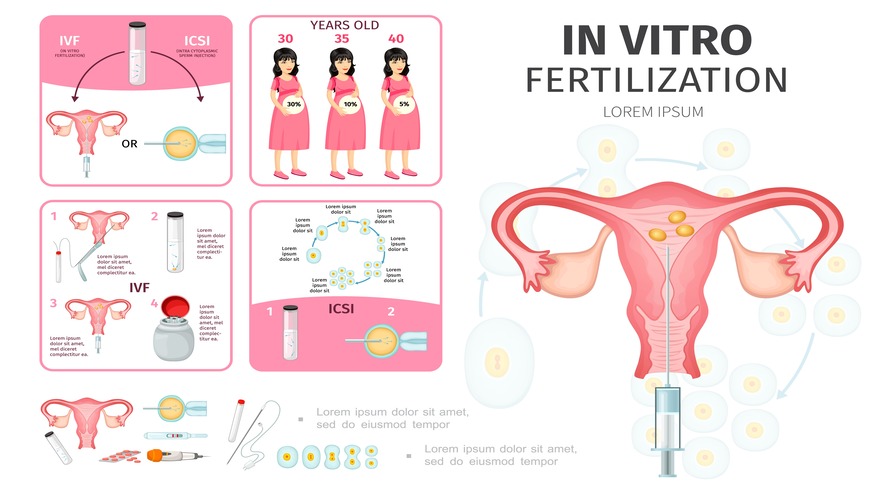
In vitro fertilization (IVF) has revolutionized fertility treatment, offering hope to couples struggling with infertility. However, success rates can vary significantly based on various factors, with age being one of the most crucial. In New York, where advanced reproductive technology is readily accessible, understanding these success rates by age is paramount for individuals considering IVF treatment.
Factors Affecting IVF Success Rates
Before delving into age-specific success rates, it’s essential to understand the factors influencing IVF outcomes. These include:
Age: A woman’s age is a critical determinant of IVF success due to its direct correlation with ovarian reserve and egg quality.
Reproductive Health: Factors such as previous pregnancies, ovarian function, and reproductive health issues can impact success rates.
Lifestyle Factors: Smoking, alcohol consumption, weight, and overall health can affect fertility and IVF outcomes.
Quality of Fertility Clinic: The expertise of the fertility clinic, its techniques, and protocols play a significant role in IVF success.
IVF Success Rates by Age in New York
Under 35 Years Old
In New York, women under 35 generally have higher IVF success rates.
Success rates can range from 40% to 60% per cycle.
Younger women tend to produce healthier eggs, resulting in better embryo quality and implantation rates.
Between 35-37 Years Old
IVF success rates decline slightly for women aged 35 to 37.
Success rates typically range from 30% to 50% per cycle.
Egg quality and ovarian reserve start to decline, affecting the chances of conception.
Between 38-40 Years Old:
IVF success rates further decline for women aged 38 to 40.
Success rates drop to around 20% to 40% per cycle.
Decreased ovarian reserve and egg quality significantly impact fertility outcomes.
Between 41-42 Years Old:
Women aged 41 to 42 face considerable challenges with IVF.
Success rates drop significantly to approximately 10% to 20% per cycle.
Fertility declines sharply, with fewer viable eggs available for fertilization.
Over 42 Years Old:
IVF success rates are markedly low for women over 42.
Success rates may fall below 5% per cycle.
Advanced maternal age significantly reduces the likelihood of conception through IVF.
Strategies to Improve IVF Success
While age is a crucial factor in IVF outcomes, several strategies can enhance the chances of success:
Preimplantation Genetic Testing (PGT): Screening embryos for genetic abnormalities can improve implantation rates and reduce the risk of miscarriage.
Optimizing Lifestyle Factors: Maintaining a healthy lifestyle, including a balanced diet, regular exercise, and avoiding harmful habits like smoking, can positively impact IVF outcomes.
Consulting with Fertility Specialists: Seeking guidance from experienced fertility specialists can help individuals understand their options and tailor treatment plans based on individual needs.
Considering Egg Donation or Embryo Adoption: For individuals with diminished ovarian reserve or poor egg quality, using donor eggs or adopting embryos may offer higher success rates.
Exploring Alternative Therapies: Complementary therapies such as acupuncture, yoga, and stress reduction techniques may improve fertility outcomes when used alongside IVF treatment.
Advanced Techniques in IVF for Improved Success
In addition to age-specific considerations, advancements in IVF techniques contribute to higher success rates and better outcomes for patients in New York.
Intracytoplasmic Sperm Injection (ICSI): This technique involves injecting a single sperm directly into an egg, bypassing potential fertilization barriers. ICSI is particularly beneficial for couples dealing with male factor infertility or low sperm count.
Blastocyst Culture and Transfer: Culturing embryos to the blastocyst stage before transfer allows for better selection of viable embryos. By transferring blastocysts, fertility specialists can improve implantation rates and reduce the risk of multiple pregnancies.
Assisted Hatching: Assisted hatching involves thinning the outer shell (zona pellucida) of the embryo before transfer, making it easier for the embryo to implant in the uterine lining. This technique is beneficial for older women or those with thickened zona pellucida.
Frozen Embryo Transfer (FET): Freezing embryos for future transfer allows for better synchronization between the embryo and the uterine lining. FET cycles have shown comparable success rates to fresh embryo transfers and offer flexibility in treatment scheduling.
Preimplantation Genetic Testing (PGT): PGT involves screening embryos for chromosomal abnormalities or genetic disorders before transfer. By selecting euploid embryos (those with the correct number of chromosomes), PGT can improve implantation rates and reduce the risk of miscarriage.
Endometrial Receptivity Analysis (ERA): ERA evaluates the receptivity of the uterine lining to embryo implantation by analyzing the gene expression pattern. This personalized approach helps identify the optimal timing for embryo transfer, increasing the chances of successful implantation.
The Role of Emotional Support and Counseling
Navigating the complexities of infertility and IVF treatment can take a toll on patients’ emotional well-being. In New York, fertility clinics often offer counseling services and support groups to help individuals cope with the emotional challenges associated with infertility. These resources provide a safe space for patients to share their experiences, seek guidance, and access psychological support throughout their fertility journey.
Frequently Asked Questions (FAQs)
Q: What are the main factors influencing IVF success rates?
A: Age, reproductive health, lifestyle factors, and the quality of the fertility clinic are key determinants of IVF success rates.
Q: How do IVF success rates vary by age?
A: Success rates generally decline with increasing age, with younger individuals typically experiencing higher success rates compared to older individuals.
Q: What are some strategies to improve IVF success?
A: Preimplantation genetic testing, lifestyle optimization, consulting with fertility specialists, considering alternative therapies, and exploring advanced techniques like ICSI and blastocyst culture can enhance IVF success rates.
Q: What are the benefits of frozen embryo transfer (FET)?
A: FET offers flexibility in treatment scheduling, comparable success rates to fresh embryo transfer, and improved synchronization between embryos and the uterine lining.
Q: How can emotional support and counseling aid in the IVF process?
A: Emotional support resources, including counseling services and support groups, provide a vital outlet for patients to cope with the emotional challenges of infertility and IVF treatment, fostering resilience and well-being throughout the journey.
Conclusion
In New York, IVF success rates vary significantly by age, highlighting the importance of informed decision-making and personalized treatment approaches. While age poses challenges to fertility, advancements in reproductive technology and proactive measures can help individuals achieve their dream of parenthood. By understanding the nuanced factors influencing IVF success and leveraging appropriate strategies, individuals can navigate their fertility journey with confidence and hope.
Should you have any questions or concerns, please do not hesitate to contact us at 212-661-7177 or info@eggdonors4all.com.

Dr. Kulsoom Baloch
Dr. Kulsoom Baloch is a dedicated donor coordinator at Indian Egg Donors, leveraging her extensive background in medicine and public health. She holds an MBBS from Ziauddin University, Pakistan, and an MPH from Hofstra University, New York. With three years of clinical experience at prominent hospitals in Karachi, Pakistan, Dr. Baloch has honed her skills in patient care and medical research.








